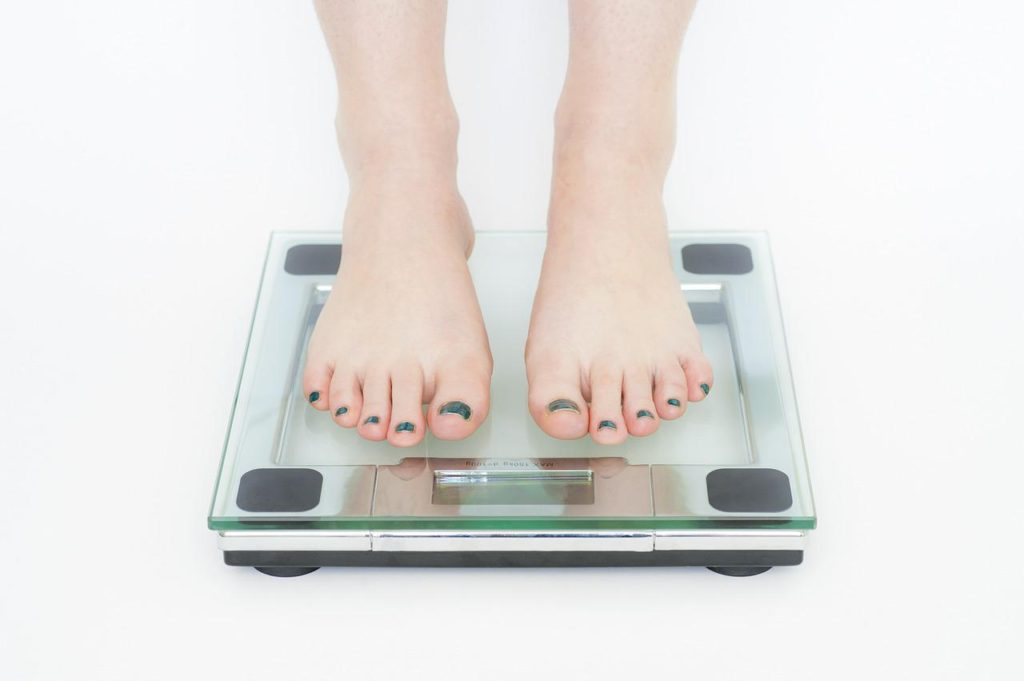Non-Toxic Living / May 9, 2022
Learn About the Three Non-Food Items In Your Kitchen That Could Be Causing You To Gain Weight.
Trying to flatten your belly or lose a few pounds can feel like an uphill battle at times, especially when you’re trying to navigate through a dizzying array of conflicting information.
Between the countless diets and exercise regimens being touted by experts, and the never-ending parade of Keto, Paleo, juice cleanse, and low-carb fads on social media, it’s no wonder that so many people are confused about how to reach their weight loss goals.
When it comes to losing weight, most people would agree that diet and exercise are key.
After all, these two factors play a major role in controlling our calorie intake and burning off excess calories through physical activity.
And yet, despite the importance of diet and exercise in weight loss, there is another key factor that often goes overlooked: chemicals in everyday products.
You can eat all the kale and quinoa in the world, and workout until you’re ready to collapse, but you’re still not going to lose weight if you’re constantly exposing yourself to chemicals that promote weight gain.
Though we may not realize it, chemicals are everywhere in our everyday lives – whether they be in the food we eat and the products we use, or even in the air we breathe.
But, there is something that we can do about it!
So, if you’re looking to finally shed those extra pounds, you need to start paying attention to the products you’re using and make sure they’re not sabotaging your diet and exercise routine.
With a little effort, you can slowly start switching out these products so you can look and feel your best.
Chemicals in the kitchen
What are the chemicals in your kitchen that could be affecting your weight? Are they in your food? In your storage containers? Or something else entirely?
Understanding which chemicals might be causing weight gain can be tricky, but it’s worth taking the time to figure it out. After all, even small changes can have a big impact on your health!
It’s no secret that obesity is a major problem in the United States. More than one-third of American adults are obese, and this number continues to grow.
While there are many factors that contribute to obesity, it’s now believed that obesogens – chemicals that promote weight gain – may be playing a role as well.
Understanding Obesogens
You may not be familiar with the term “obesogen”, but you’re probably familiar with the effects of these chemicals on your body.
Obesogens are chemicals that disrupt the normal function of our hormones, causing our bodies to store more fat.
They’re found in all sorts of everyday products, from non-stick cookware to processed foods.
And studies have shown that they can cause weight gain in animals – even at very low doses.
Obesogens can interfere with the way our cells process energy. This disrupts the delicate balance of metabolism and causes our bodies to store more fat than they would normally.
Studies have shown that exposure to these chemicals can lead to increased fat storage, insulin resistance, and inflammation.
In addition, obesogens can disrupt the normal development of fat cells, making it more difficult for the body to lose weight.
If you’re concerned about the potential effects of obesogens on your health, here are a few simple steps you can take to reduce your exposure.
3 Obesogens In The Kitchen
BPA (Bisphenol-A)
BPA is a chemical that was first synthesized back in 1891 as a synthetic estrogen and over the years, made it’s way into hundreds of thousands of consumer products.
It is currently found in the bodies of 98% of Americans.
BPA is a well-established obesogen and is linked to changes in the way that our fat cells grow and develop.
And, don’t be fooled by BPA free. The manufacturers replaced the BPA with either BPS or BPF (just other bisphenols).
Studys show that these replacements have the same effect on hormones that BPA had in the first place.
Where BPA can be found:
- Canned food
- Certain plastics
- Cash register receipts
What can we do about it?
- Stay away from canned foods. All canned food and drink have an epoxy lining inside that uses BPA.
- Although not all plastic contains BPA, all plastics can affect hormones. Store food in glass containers instead of plastic.
- Switch to glass blenders.
- Skip the store receipt. Most stores use a thermal paper that contain a layer of BPA. If a receipt is needed, have it emailed to you.
Pesticides
Over 1 BILLION pounds of pesticides are used on US crops each year and 9 of the top ten pesticides used are obesogens.
The average person is exposed to between 10 to 13 pesticide residues in their food and water every single day!
Where pesticides can be found:
- On conventionally grown fruits and vegetables
What can we do about it?
- First, buy organically grown food.
- Organic foods bearing the USDA organic seal are grown and raised without the use of pesticides and don’t carry the residues commonly found on conventionally grown foods.
- While at the market, look for the #9 at the beginning of the PLU# on the sticker.
- And, yes… it can be slightly more expensive but, it is better to pay a little bit more now to invest in your health because it does make a difference!
- We don’t have to buy EVERYTHING organic, especially when we are on a budget. So, if you need to prioritize, the best way to do that is using The Environmental Working Groups Dirty Dozen and Clean 15 list.
- Just buy one or two things off of the Dirty Dozen list and buy the rest from the Clean 15 list. This will save you money while limiting your exposure to pesticides.
PFAS Chemicals
PFAS, or per- and polyfluoroalkyl substances, are a family of chemicals that is used in the many items in your home. In the kitchen, they are used in the manufacturing of non-stick cookware.
They can also be found in the lining of microwave popcorn bags.
PFAS chemicals are known obesogens that interferes with thyroid hormones which regulate our weight and metabolism.
Where PFAS can be found:
- Non-stick cookware
- Microwave popcorn bags
- Take-out food containers
- Pizza boxes
What can we do about it?
- If your non-stick cookware is scratched, definitly get rid of it!
- Replace it with cast iron or stainless steel.
- What is great about cast iron is that, of cared for properly, will become non-stick over time.
- Skip the Microwave popcorn and opt for air popped popcorn instead.
Conclusion
Now that you know a little more about these three chemicals and their effects on weight gain, what are you going to do?
Will you take the time to learn more about them and how they might be impacting your health and weight?
Are there specific products in your home that contain BPA, PFAS or pesticides?
Start by taking small steps like these to reduce your exposure.
And if you want help, please reach out!
Want More Tips? Download the Free “7-Day Home Detox Guide”
Looking to make changes in other areas of your home? My free “7-Day Home Detox Guide” offers simple, low-cost steps to make your home healthier, one day at a time.
Get it here to start building a non-toxic lifestyle that works for you!

Where to Go from Here: Resources to Keep You Empowered
Your non-toxic journey doesn’t have to be a lonely one.
You can stay connected on social media Facebook | Pinterest | Instagram where I share daily tips, product recommendations, and encouraging messages to keep you inspired on your journey.
And if you’re looking for trustworthy, non-toxic products to add to your routine, my online shop is curated with only the best low-toxic and non-toxic items I personally use and recommend.
Get started:
– Follow on social media: Facebook | Pinterest | Instagram
– Shop Curated Non-Toxic Products.




